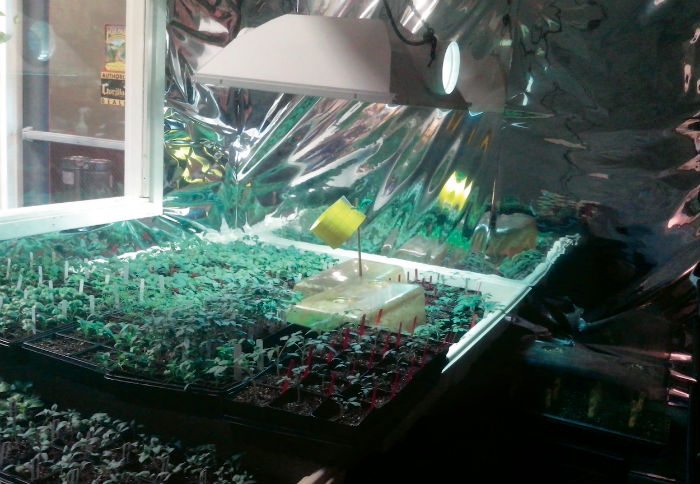
A Hobbyist’s Haven
The story of how Fifth Season Gardening Co. came to be is not your traditional one. Owners Richard Quinn and Ashley Mattison both earned advanced English degrees and were working at the University of North Carolina when they decided to purchase Ashville Agricultural Systems in Ashville, North Carolina, from Ashley’s brother.
That was in 2001 and, over the next five years, they opened two more stores (under the name Carolina Hydrogardens). In 2006, the businesses came together under one name, and Fifth Season Gardening Co. was born.
The company continued to expand and now has five full retail locations and a couple warehouses.
Lawn & Garden Retailer caught up with Ethan Johnston, manager of the Carrboro location, to talk about the business, which is broken up into what he calls “the big four:” hydroponics, organic gardening, homebrew and urban DIY.
L&GR: Can you talk a little bit about who your customers are? They aren’t the same for all four of these categories, are they?
Ethan Johnston: Oh no, not at all! That’s one of the nice things to me about the business. You have to be a little more dynamic in your ability to address a wide demographic.
The Research Triangle is a big education area, so a lot of our customers are grad students or professors, or they work with the school system somehow or work for the medical system because we have a very extensive hospital system here with Duke and UNC. Then we have all the way to college students coming in to get homebrew supplies or we have people coming in and collecting succulents and things, so we serve just about everybody.
The locations based in the Carrboro/Chapel Hill area have most people with small raised beds that we’re helping out this time of the year. We have a lot of people working with the 20-50 square-feet- gardening range, so a lot of business professionals or academics that live in this area.
 We carry some lawn, yard art, house décor type things that you have to be able to help maybe an elderly lady select something like that, and then you have people who come in and need their hydroponic supplies or a 50-pound bag of blood meal, so we get a wide, wide range of folk.
We carry some lawn, yard art, house décor type things that you have to be able to help maybe an elderly lady select something like that, and then you have people who come in and need their hydroponic supplies or a 50-pound bag of blood meal, so we get a wide, wide range of folk.
We have a farm clientele we serve and then a large section of the community that does small- scale gardening.
We definitely hit the higher age ranges as well as the younger groups.
A willingness to engage and try things out is very much the lifestyle here. There’s a lot of curiosity in a college town. A lot of kids also just want a plant for their dorm room, and we get a lot of them too.
L&GR: Let’s start with the company’s roots and talk a bit about hydroponic gardening. What changes have you been seeing within this industry?
Johnston: We’ve definitely seen a recent uptick or interest in indoor gardening, which had been sort of a declining market in this region, and that’s no longer the case.
With indoor gardening we’re oftentimes not extremely inquisitive into what people are growing for a couple of reasons.
That having been said, one thing I’ve seen a lot of recently is hot peppers. There are some people who are getting really, really into pepper genetics. We have a number of customers who want to grow a ghost pepper or a Trinidad scorpion or something like that.
The race to grow the hottest pepper in the world or get the most Scoville units is something we have some customers that are really into.
We do have a fair amount of folks that fall into the recently retired range, and indoor gardening is something that’s fun for them to play around with.
We have some folks that come in and have done hydroponics for a school project and then keep it up. It’s really good for having controlled environments for kids that want to do say a high school chemistry project where you control everything and then you can see what impact one thing has.
We also have a number of customers who use it to generate income and we usually pry a little bit less into what they may or may not be doing. We hold no judgments; we just don’t inquire.
In that respect, there does exist a very lucrative indoor gardening possibility and that has driven a lot of creativity and ingenuity in the market. A lot, if not all, of the advanced indoor gardening technology that comes out is a result of that industry because it is so lucrative and ergo so much money can be put into research and development.
The technology that has come out with indoor gardening in past years has been phenomenal.
We try to cater to people based on what they are trying to do and what space they’re trying to use. We’re also trying to advise on the most economical and environmentally friendly practices.
We’re usually trying to teach people about recirculating systems as opposed to drain to waste or something like that. Then trying to set people up with the most economic solution depending on their needs, as well as addressing their light and space needs and stuff like that.
L&GR: You mention a focus on environmentally friendly practices. It sounds like that’s a large part of each aspect of the business.
Johnston: We want to give people reasons and science and educate people, so they can start to make the decisions themselves and not just try to sell them on something that sells awesome.
A big part of our company mindset is sort of the triple bottom line in terms of value for the customer and reducing our negative impact on their economy and the environment.
This is a business as well that tries to reduce carbon footprint, waste and things like that as much as possible.
We do an in-house composting program. We offer our customers recycling for their HID bulbs. We tell people please not to put them in the landfill because there’s mercury in those, and instead bring them to us and we’ll recycle them.
We’re adamant about keeping those compounds out of the landfill and reducing the stress of those types of products on the environment.
We encourage our organic gardeners to recycle materials that you can recycle. We try to get as much information regarding the plastic trays and pots they’re using and which ones can be cleaned and recycled.
A lot of folks don’t think those can be, so we try to make sure people are aware of the myriad ways they can reduce waste and reuse or recycle items and things like that.
L&GR: How do you educate both your staff and your customers?
Johnston: Staff education and training is sort of a constant discussion and it is something that we at least have a plan to do better this year.
For customers, my strategy is usually to give them as much of a comprehensive overview as is possible for the hobby that they’re getting into. There are a number of things you run into in that respect. It’s tricky to navigate.
On one hand, we’re not a consultation service, so it is a little bit tricky to get someone to come in and say, “Well, what’s all this about?” Well, I can give you a lot of information about it, but I can’t teach you everything. That’s not a reasonable expectation with sort of the time and energy that would take.
I like to give them a realistic expectation of what the hobby is going to consist of — what their inputs will be as far as time, energy and money. And then to give them a good resource for educating themselves more and to give them my contact information, so that if they have any questions along the way, I’m happy to help with that.
For staff, we try to do hands-on, in-depth education. Given the retail aspect, we are training them about how to use each product but also how to sell the items, so my language and diction and such is quite a bit different when training employees over educating customers so that they truly understand.
One of my big things for both customers and staff is making sure that people understand and have an education and information about things. They’re able to make more dynamic decisions and choices if they have a more complete understanding of things, so that’s our goal there.
When any of our customers ask a more in-depth question that a staff member does not know an answer to, we encourage them to stick around when the answer is explained to the customer, so they learn it. I’ll oftentimes take staff after I’ve answered a question and gather them around and explain what went on over there, what their issue was and what’s the solution to the problem.
L&GR: Are there any unexpected top sellers in the gardening department, or what is getting a lot of interest?
Johnston: We’re moving into spring now, so that will be the time of year where we really start to see what’s happening.
Every spring when the plants start, it’s always weird what people are into and looking for. You never know what’s been in the magazines or on a TV show or something like that, and all the sudden customers are like “I want Lacinato Kale,” and you’re like, “But last year it was Red Russian.”
In the past year or year and a half, we’ve definitely seen an increase in succulent-type plants and cacti. That is in part due to a growing national interest as well as the fact that myself and one or two other people that work here have extensive collections of them, so that definitely helps.
Ficus lyrata trees have been super hot right now. Philodendrons are super hot right now, which it just all comes down to the looks in magazines and whatever is around on gardening and home décor sites and TV shows.
One other thing is air plants. We have a lot of interest in our air plants selection.
L&GR: What are people most interested in when it comes to the homebrew and urban DIY categories?
Johnston: There’s a lot of attention on homebrewing for sure. It peaked probably a year or two ago and is kind of settling out, but just from watching the market, it seems like it’s definitely going to stick around.
There was a similar boom back in the ‘90s but that was sort of that homebrewing was around and then it was gone. It wasn’t like a lot of people kept up the hobby, but there seems to be a much, much higher retention in this recent wave and uptick.
I think a lot of that is due to the fact that there’s been this huge increase of interest in the craft beer side, which has resulted in an increase in people’s understanding and awareness of the craft and all the different styles. Also, there’s a marked increase in the improvement of the quality of those types of items.
The quality of the product you can produce now is much higher and it’s easier to produce a higher quality product, which results in retention. If you make three or four batches of something that doesn’t taste good, you’re not going to do a fifth or sixth in all likelihood, so that’s definitely helped a lot.
We get a lot of people coming back in that say, “I haven’t done this in 20 years,” and it’s like, “Well, you’re in for a treat. It’s a lot better now.”
Again, similar to indoor gardening, an increase in attention and sort of the potential to make money off of that market has resulted in an increase in technology, information and things like that.
It’s great for people that are in the hobby because they have access to a lot more, which really relates to everything we do in that more and more things are becoming available and what’s becoming available is higher quality and better. That goes with our indoor gardening technology, outdoor gardening supplies, homebrew, DIY and stuff like that.
Urban DIY includes a lot of things, and it’s probably our smallest or least intensive category. That covers a number of sort of hobbies that don’t have quite the following as the other ones. We have some folks making cheese. We have some folks making kombucha, kefir, things like that.
It’s easy for us to be the spot for people with a number of hobbies that fit in line with what we’re doing. We can have a small section of stuff to grow your own mushrooms, we can have a small section for canning and things like that.
A lot of it all ties into each other. Food fermentation and preservation ties into our gardening department. With kombucha and kefir and mushroom supplies, you’re working with microorganisms, very similar to the microorganisms that work in fermenting beer or wine or cider or mead.
We’re all about people being self-sustaining.


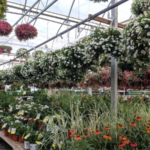

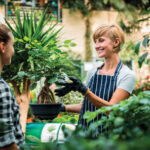


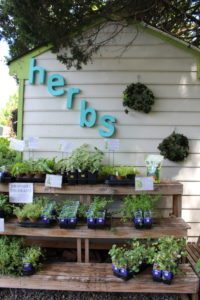
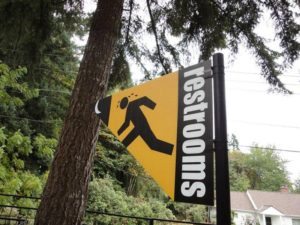
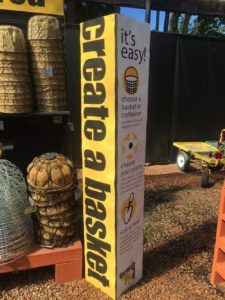
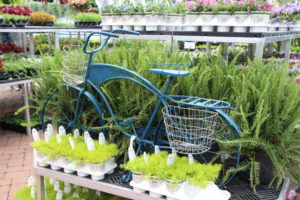
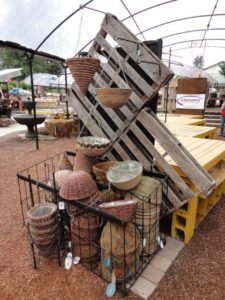
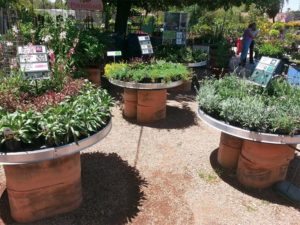
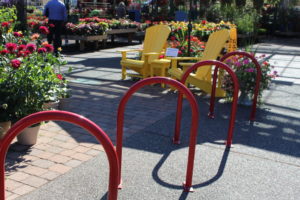
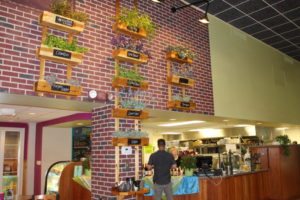
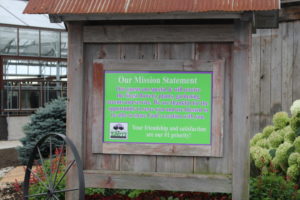
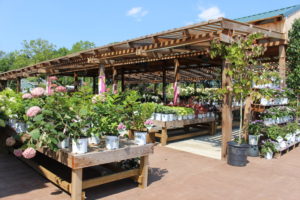
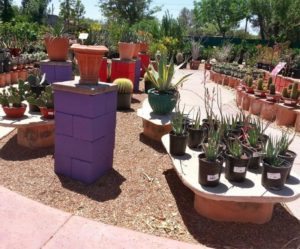
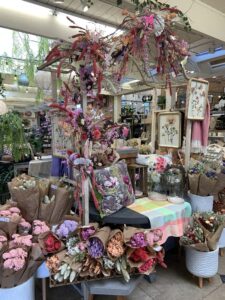
 Videos
Videos





